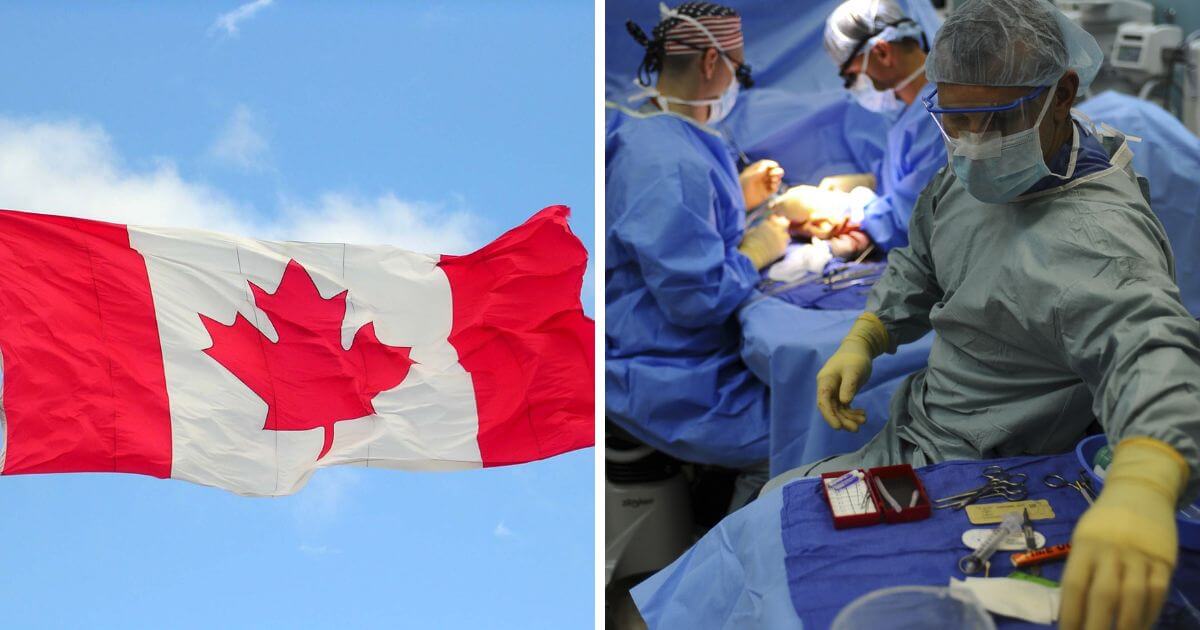The heart of a 38-year-old man whose life was ended by euthanasia in Canada has been successfully harvested and transplanted into a 59-year-old American, amid concerns that organ donation creates pressure to end one’s life.
The American man, who was dying from heart failure and not expected to live longer than a month, received the transplanted heart from a Canadian man whose life was ended by euthanasia.
The heart donor had motor neurone disease and reportedly had expressed a wish to donate his organs. According to reports, in the case of individuals whose lives are ended by euthanasia or assisted suicide, organs are harvested immediately after death.
His death was declared within seven minutes of euthanasia being initiated, and once his heart was harvested, it was transplanted only five hours and 28 minutes later. The transplant was a success, and the recipient was discharged less than three weeks after the procedure.
Organ harvesting following euthanasia or assisted suicide sets a dangerous precedent
However, some have argued that vulnerable people may be coerced or incentivised to end their lives through assisted suicide or euthanasia if they believe that other people might be waiting on their organs.
According to a 2023 review by Canadian medical authors of the legal and ethical concerns of organ harvesting following euthanasia, organ donation organisations in some Canadian provinces like Ontario and British Columbia “recommend that all patients who request [euthanasia or assisted suicide] are approached and informed about the possibility of organ donation”.
The authors of the review “expressed concerns that the conversation about the possibility of organ donation may pressure vulnerable patients to proceed with [euthanasia or assisted suicide]”, stating that this can “cause a breach of trust with the health care professionals”.
They stated that “informing them of this possibility may cause undue societal pressure for donation, and the desire to become a donor may be a driver for the [euthanasia or assisted suicide] request”.
Canada leading the world in organ harvesting following euthanasia
The landmark case comes after Canada was found to be the world’s leading country in organ harvesting from people who end their lives by euthanasia between the first provision of organ transplant following euthanasia in 2019 and 2021.
A report published in the American Journal of Transplantation in December 2022 found that 136 people whose lives were ended by euthanasia in Canada have donated their organs between 2019 and 2021. The figure far outweighs the other countries in the study that permit organ transplantation after euthanasia. In Belgium, from 2005 to 2021, there were 57 instances of organ donation following euthanasia, and in the Netherlands, from 2012 to 2021, there were 86 instances of organ donation following assisted suicide.
In Canada, at least 235 people whose lives have been ended by euthanasia or assisted suicide have consented to donating their organs since 2021, based on data from the Canadian Institute for Health Information.
The data shows that, in 2024, 7% of 894 people who were deceased and donated organs did so following the end of their lives as a result of euthanasia or assisted suicide. In the same year, 5% of all organ transplants used organs donated from people whose lives were ended by assisted suicide or euthanasia.
Spokesperson for Right To Life UK, Catherine Robinson, said “Canada’s apparently enthusiastic embrace of organ harvesting following euthanasia is deeply concerning”.
“Offering organ donation after euthanasia creates a perverse incentive for people who want to end their lives, in the sense that they could be led to believe that their death will do some good for someone else. It may not be the only concern, but it is undeniable that this will become a factor influencing the decision to opt for euthanasia”.












